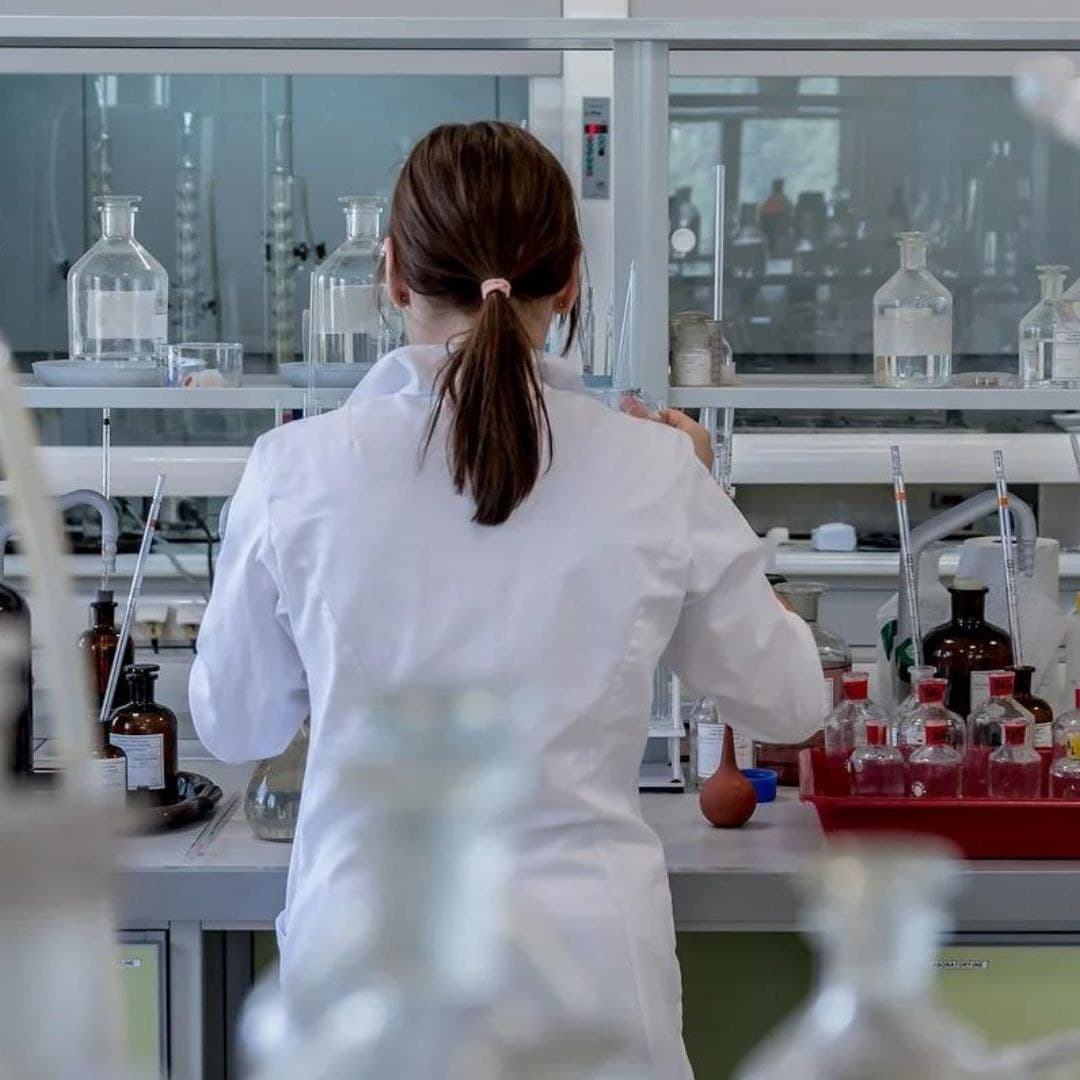
Image Credit: Pixabay
11 Scientists Receive India's Highest Science Award
Writer: Abbas Rizvi
He is a voracious reader who likes to read about the world. Research and Fact Checking are his area of work. He likes to think before speaking.
India, 28 Sep 2021 2:19 PM GMT
Editor : Madhusree Goswami |
A mountain girl trying to make it big in the city. She loves to travel and explore and hence keen on doing on-ground stories. Giving the crux of the matter through her editing skills is her way to pay back the journalism its due credit.
Creatives : Abbas Rizvi
He is a voracious reader who likes to read about the world. Research and Fact Checking are his area of work. He likes to think before speaking.
The names of 11 scientists, who received the country's highest science award Shanti Swarup Bhatnagar Prize for science and technology 2021, were announced during the 80th foundation day of the Council for Scientific and Industrial Research (CSIR) on Sunday, September 26.
The names of 11 scientists, who received the country's highest science award Shanti Swarup Bhatnagar Prize for science and technology 2021, were announced during the 80th foundation day of the Council for Scientific and Industrial Research (CSIR) on Sunday, September 26.
The prize will be given to Indian scientists below the age of 45 and have done outstanding research in seven fields— biology, chemistry, environmental science, engineering, mathematics, medicine, and physics.
Dr Arun Kumar, from the department of biological sciences and bioengineering, Indian Institute of Technology Kanpur and Dr Amit Singh, from microbiology and cell biology, Indian Institute of Science, Bengaluru, were awarded in biological scientist. Singh is an expert in microbiology who worked on deciphering the role of genes involved in mycobacterium tuberculosis (Mtb) pathogenesis during his doctoral degree (PhD), and Shukla is an indian structural biologist, also known as a cell scientist, who has been working at IIT Kanpur since 2014.
Researchers from the prestigious Jawaharlal Nehru Centre for Advanced Scientific Research, Bengaluru, Dr T Govindaraju from the bio-organic chemistry laboratory, and Dr Kanishka Biswas from the International Centre of Materials Science were announced as awardees in chemical sciences. While Govindaraju's work focuses on chemical biology and is engaged in solving challenging problems related to human health and society, Biswas's research fields include thermoelectric materials and devices that utilise waste heat to generate electricity.
For atmosphere, earth, ocean and planetary sciences, Dr Binoy Kumar Saikia from Coal and Energy Research Group, CSIR North East Insitute of Science and Technology, Jorhat, was named an awardee.
Dr Debdeep Mukhopadhyay, from the Department of Computer Science and Engineering, Indian Institute of Technology Kharagpur (IIT), received the award under the engineering sciences category. At the Indian Institute of Technology Kharagpur, he initiated the Secured Embedded Architecture Laboratory (SEAL), focusing on embedded security and side-channel attacks.
Mathematical sciences scientists Dr Saket Saurabh, The Institute of Mathematical Sciences, Chennai and Dr Anish Ghosh, from the mathematics department, Tata Institute of Fundamental Research, Mumbai, were announced as awardees. Ghosh works primarily at the interface of ergodic theory, Lie groups and number theory, and Saket has been researching the best quality in multiple areas of algorithms.
In medical sciences, the award went to Dr Rohit Srivastava, department of biosciences and bioengineering, Indian Institute of Technology Bombay and Dr Jeemon Panniyammakal Achuta Menon Centre for Health Science Studies and Sree Chitra Triunal Institute for Medical Sciences and Technology, Thiruvananthapuram. Jeemon is a trained epidemiologist with a decade of experience in observational epidemiological studies and clinical trials. Dr Srivastava's research interest includes fluorescent biosensors, photothermal therapy and nanoengineered sensors for breast cancer.
For physical sciences, Dr Kanak Saha from Pune's Inter-University Centre for Astronomy and Astrophysics, received the award. Saha's primary research focuses on galaxies, their structure, formation and evolution.
'Come Up With A Clear Roadmap On Research'
During the ceremony Vice President of India advised CSIR to reinvent itself and think about the future while pursuing the science of the highest order. " In a big country like us, there is various kind of challenges institutions like CSIR need to gear up to address all kinds of uncertainties. Every laboratory of the CSIR should come up with a clear road map on new research-based projects that seeks to address various hurdles and contribute to the larger good of humanity," said Naidu at the event.
For some of the significant challenges on which the Vice President told to focus on, he asked the researchers to pay attention to agricultural research and come out with innovations, techniques and solutions to address the problems faced by the farmers, climate change, drug resistance, pollution, epidemic and pandemic outbreaks.
Also Read : Technology That Impacts! Android Empowers Disabled People To Use Phones With Face Gestures
 All section
All section














